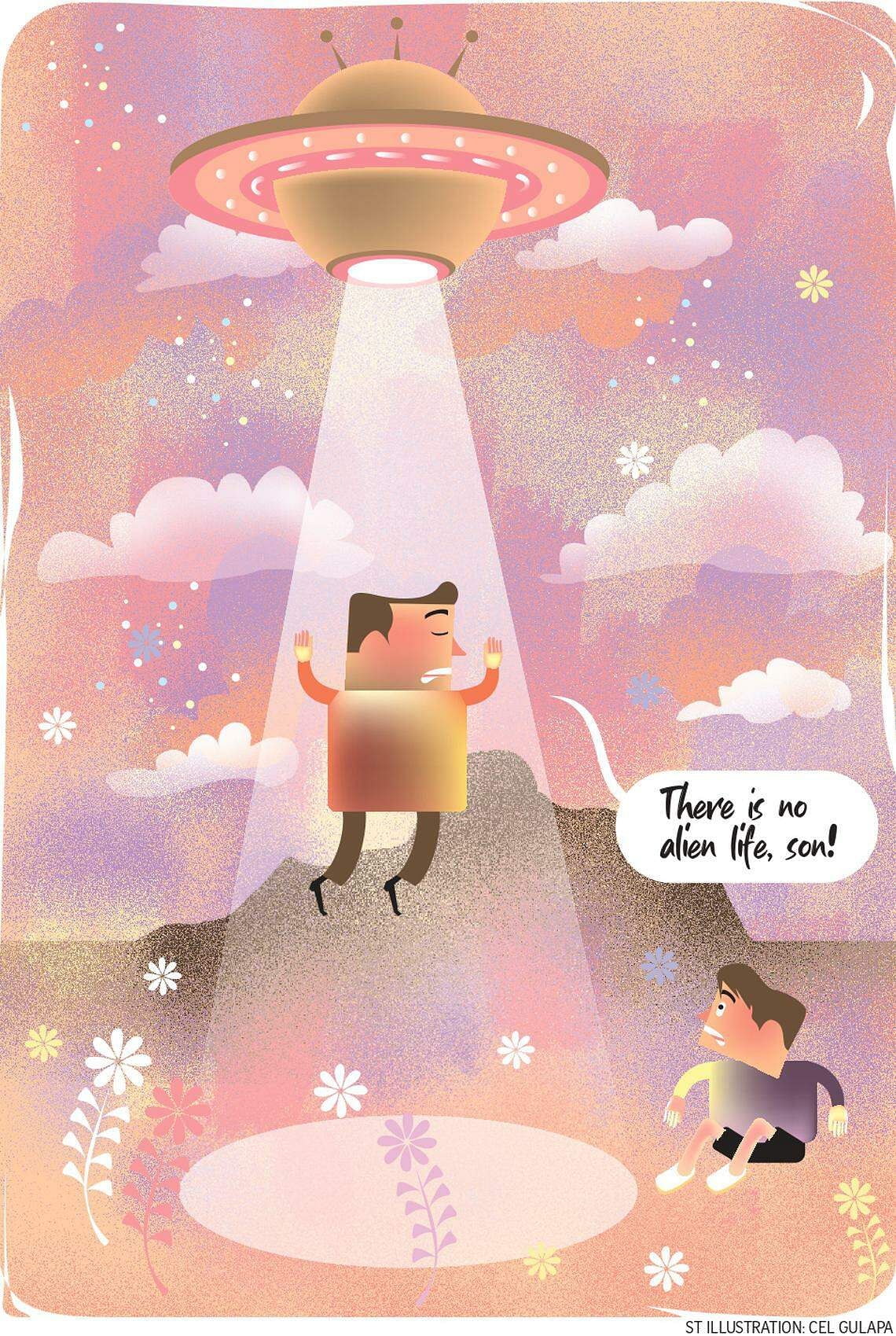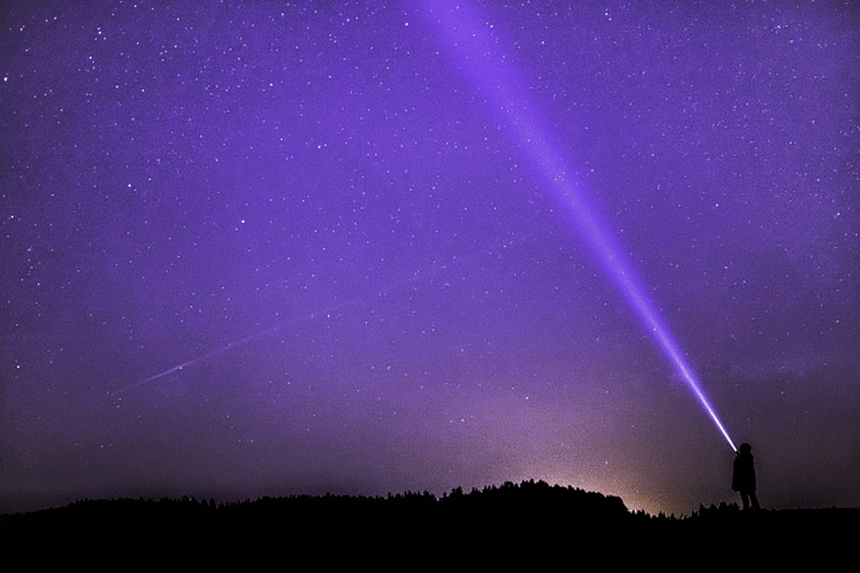SINGAPORE – “Pa, are we alone in the universe?”
That is one of the most uncomfortable questions I have ever been asked by my kids. They wanted to know if there were other intelligent life forms out there beyond earth.
“Yes, we are alone, there are no aliens, now finish your dinner,” I brusquely answered, shutting down any further discussion on the topic.
Strangely, I remember asking the same question as a child and getting a similarly glib answer. It is interesting how history repeats itself.
As parents, we are often advised to entertain our children’s questions to encourage them to remain curious as they make sense of the world and universe around them.
But, too often, we barely have enough energy to feed, clothe and provide for the kids, let alone contemplate doing much more.
Meeting basic needs often trumps the nurturing of curiosity. Tending to that can happen tomorrow? Or never.
The book Interstellar: The Search For Extraterrestrial Life And Our Future In The Stars by best-selling author, Professor Avi Loeb of Harvard University, piqued my curiosity and reminded me of this uncomfortable period in my parenting journey.
The book talks about the search for extraterrestrial life and describes the future of mankind on earth as bleak, given the issues that threaten us. He writes: “The earth’s demise is an inevitability, whether it is a few years off, due to an act of egotistical human hubris or a massive meteor not yet identified, or a billion years off as a result of the sun’s expansion”.
It presents the search for other intelligent life as a solution to preserve the human race. It goes on to summarise the latest research in astronomy, physics and philosophy to present a blueprint for how interactions with extraterrestrial life could possibly occur.
Prof Loeb, whom The New York Times calls the “world’s leading alien hunter”, is an astrophysicist who formerly chaired the department of astronomy at Harvard University.
He was born on a farm in rural Israel, recruited into the Israeli Talpiot service of ultra-smart soldiers to study physics and computer science and design next-generation weapons. Work from his time in the Israeli military was incorporated in the 1980s into the United States’ so-called Star Wars programme, a missile defence system intended to protect the US from attack by nuclear weapons.
On the topic of unidentified flying objects (UFOs), I found out from the book that the term is no longer in use, because recent sightings go beyond circular flying objects of the UFO variety.
The book emphasises the significance of the Unidentified Aerial Phenomenon (UAP) report published in late 2021 by the US Office of the Director of National Intelligence.

In Prof Loeb’s mind, the most consequential UAP that has passed by earth is called Oumuamua (pronounced oh MOO-uh MOO-uh), which is Hawaiian for “a messenger from afar”. The object, shaped like a cigar at 400m long and 40m wide, passed by earth’s solar system in 2017.
The US’ National Aeronautics and Space Administration (Nasa) found the object to be 10 times brighter than anything that had been seen before passing through our solar system. In addition, Oumuamua was completely inert, without the faintest hint of dust around it – unlike comets or asteroids that give off a cometary tail of gas and dust.
A paper concludes that Oumuamua “inspires us to consider the possibility that an artificial interstellar object could potentially be a parent craft that releases many small probes during its close passage to earth, an operational construct not too dissimilar from Nasa missions”.
I have long suspected that my answer to the question of “are we alone in the universe” should have been, “I don’t know”.
Prof Loeb, a Harvard don, the US Department of Defence and Nasa all seem open to the possibility that alien life exists beyond our planet.
Who am I to say that we humans are the only intelligent life in the universe? That would be ignorant and arrogant.
Stephen Hawking, the most accomplished astrophysicist of our time, believed that the probability of life appearing on other planets is “reasonably high”. He believed that “our only chance of long-term survival is not to remain inward-looking on planet earth, but to spread out into space”.
It is hard to give a general answer to simple questions from young kids, knowing that it will trigger an onslaught of follow-up questions.
As I have found in my years of parenting, the willingness to give open answers to my kids’ questions shows a willingness to be vulnerable to them. A willingness to show that I do not have all the answers.
I have since sat my older kids down to discuss the findings of Prof Loeb’s book and the accompanying data.
If I could redo my answer to my kids’ question on alien life, my answer would be “quite possibly”.
I would then go on to explain to my boys that like those smart people who study space search for alien life, if you maintain your child-like wonder and study your maths and physics properly, you, too, can be a part of the exploration for life beyond earth.
- Abel Ang is the chief executive of a medical technology company and an adjunct professor at Nanyang Business School.


